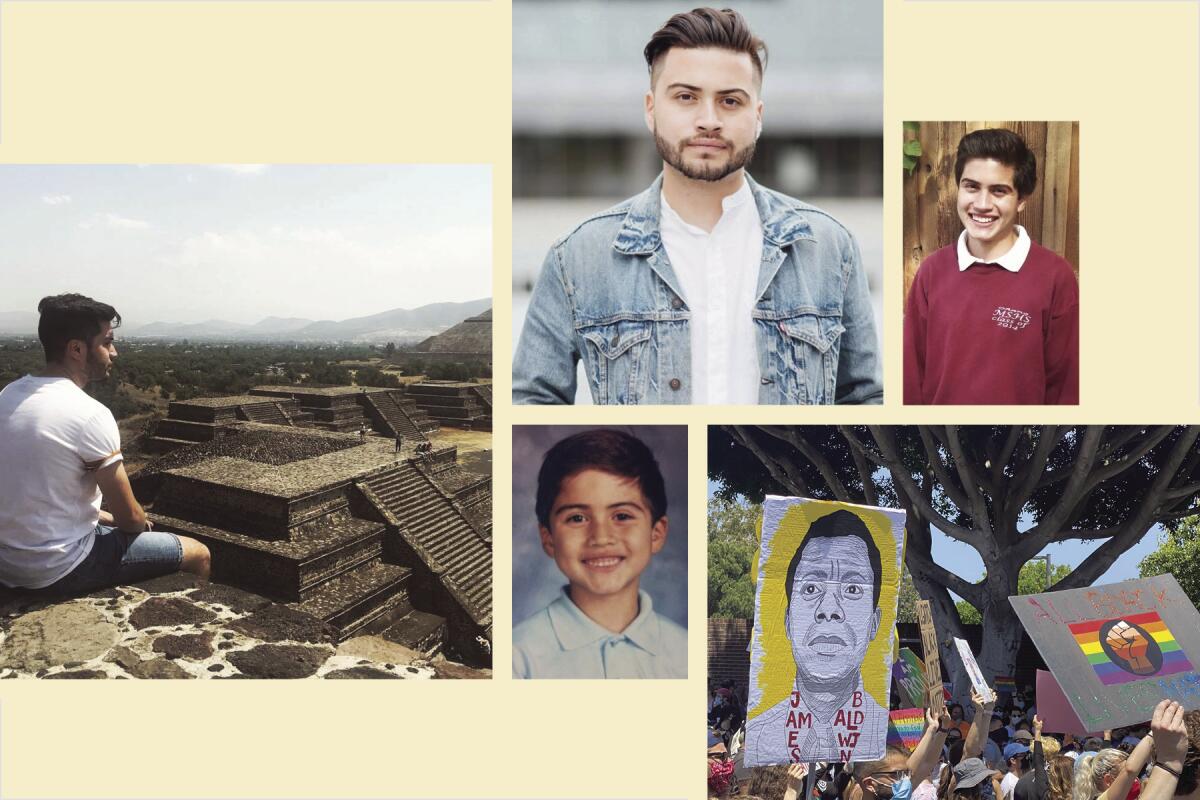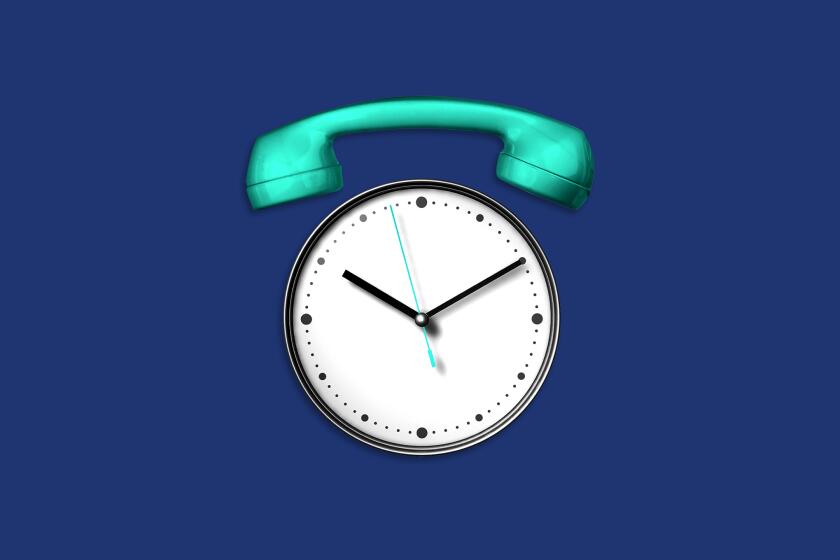How George Floyd’s death and COVID-19 reshaped my identity as a gay Latinx man

- Share via
As a gay man of color, I feel that there aren’t a lot of places for me to unpack my queer identity. Being gay was never really discussed while I was growing up closeted in my Mexican American household. And the few times it came up, it was in the context of a joke or just spoken about negatively. Questions including “¿Y la novia?” (Spanish for “And where’s your girlfriend?”) constantly enforced this notion that I could only be seen and valued if I were straight.
However, just as I began to come to terms more with my sexuality this year, understanding who I am became more challenging in the middle of a global pandemic and with worldwide protests taking place in response to the killing of yet another Black man by the police. These health and human-rights conflicts have defined how I’ve gone about understanding myself and meeting other LGBTQ folks, especially during the last four months, when I was confined within the parameters of my bedroom.
Having come out three years ago when I was 22, my life as a queer man is still very new to me. There’s a history and a culture that I was never taught or really exposed to. (I went to Catholic school for 13 years.) I’ve been fortunate enough to have a supportive family and a group of friends to turn to, but they still can’t truly grasp my experiences. I’ve never really felt complete. There was always something missing. Therefore, I sought out community on my own.
The fashion industry kept Kristen Turner feeling alienated and overlooked. She decided to do something about it. Her new magazine, Mae Jones, also has a hashtag challenge for fashion brands called #NotJustInFebruary.
That’s how I found the Wall Las Memorias Project, an L.A.-based community health and wellness organization dedicated to serving Latinx LGBTQ populations through advocacy and education.
“It’s very telling of a need for connection,” Victor Guerra-Cardoza, an assistant manager of the organization, told me over the phone this month. “A lot of folks are new to the experience and in understanding themselves and their feelings. There are bars. There is Grindr. There’s other spaces to connect, but when we look at all these intersections of all of our identities, we’re looking at the person as a whole person. Having conversations that not only relate to sexuality but also to Latinx identity is very important. We have to really see each other for everything that we are.”
I first came across this organization in November at a South L.A. HIV-awareness event, which I was covering for my blog at the time. According to the Centers for Disease Control and Prevention, Black and Latino queer men are the most affected by HIV. CDC data from 2017 shows that adult and adolescent Latino gay and bisexual men made up 29% of the 27,000 new HIV diagnoses among gay and bisexual men in the United States and and dependent areas. (And those numbers have increased in recent years.)
After meeting two staff members from the Wall Las Memorias Project, I was encouraged to attend the organization’s support group for Latino gay, bi and queer questioning men. I nervously took them up on the invitation, and for the next few months, I began to attend the organization’s bimonthly meetings in its downtown L.A. office.
We have a solid group of about 15 members, and we now meet online once a week for 90 minutes. With COVID-19, the change from in-person meetings to going fully online has been a process. Instead of jumping into my car and braving the 6 p.m. Thursday traffic on the 110 Freeway, I just have to make sure my laptop is charged before I start the Zoom meeting. During the meetings, we cover everything from toxic masculinity to the stages of coming out and queer representation in media, but ultimately the space is used to share, listen and provide support.
Freelance writer Kevin Smothers tried to reach another human in Sacramento about his unemployment claim. Would he ever get someone on the phone?
“Given everything that’s going on right now with COVID-19 and the civil unrest that many of our siblings are feeling and are going through, it’s nice to have a little space of time together to really unpack a lot of these feelings and traumas,” Guerra-Cardoza told me. “I think we’re building resiliency with each other.”
In a past meeting, we also reflected on what Pride Month means to us now that we’re social distancing. In a way I felt mixed emotions about the term because I never really felt a sense of belonging to the conversation. While I do believe there should be a sense of pride, I would argue that mainstream outlets project an image of a queer identity that is very white, commercialized and not my own.
However, my understanding of what Pride Month could be has become a little different. The killing of George Floyd at the hands of the police has sparked a bigger conversation that is taking place online and on the streets. Recently I was in West Hollywood with a friend. There were crowds of protesters everywhere.
We wore face masks in support of LGBTQ rights and against racial injustices. For the first time since I’ve been out, I realized that I can no longer live with one foot in and one foot out of the closet.
More to Read
Sign up for The Wild
We’ll help you find the best places to hike, bike and run, as well as the perfect silent spots for meditation and yoga.
You may occasionally receive promotional content from the Los Angeles Times.












